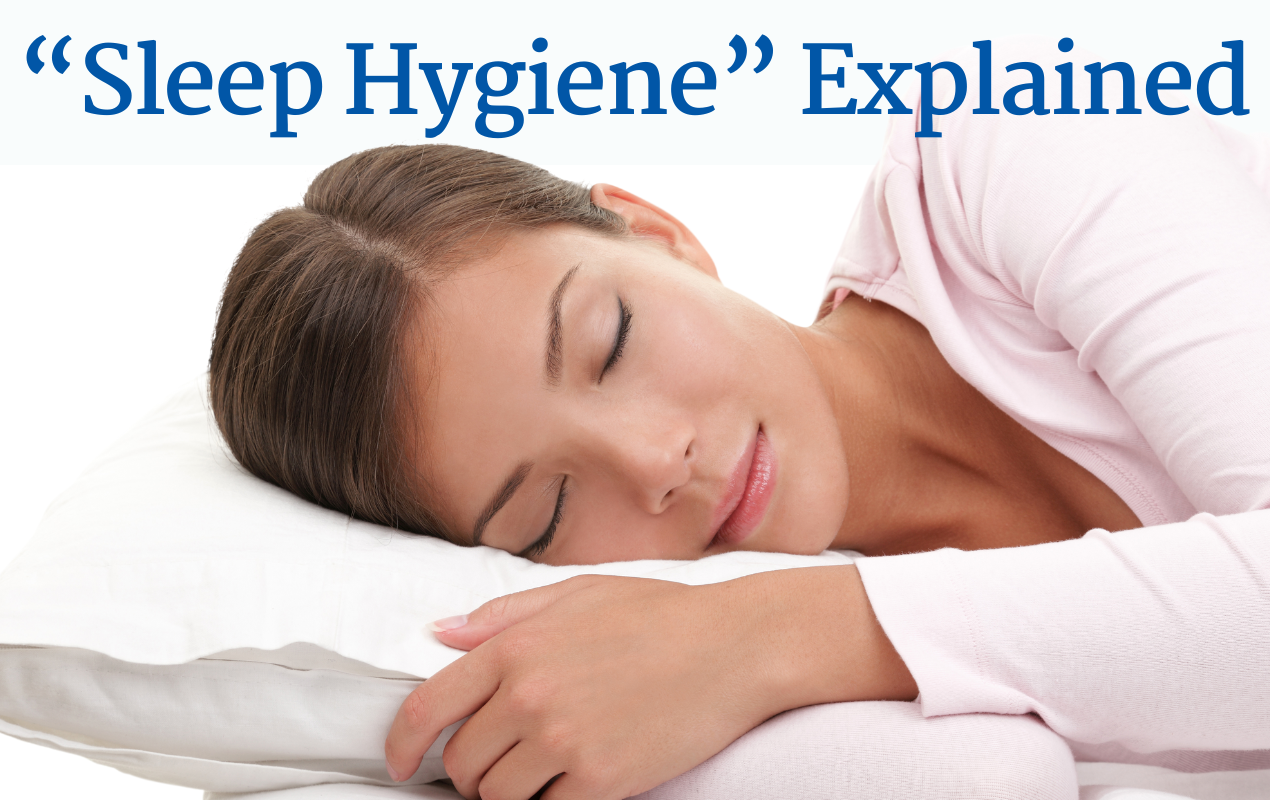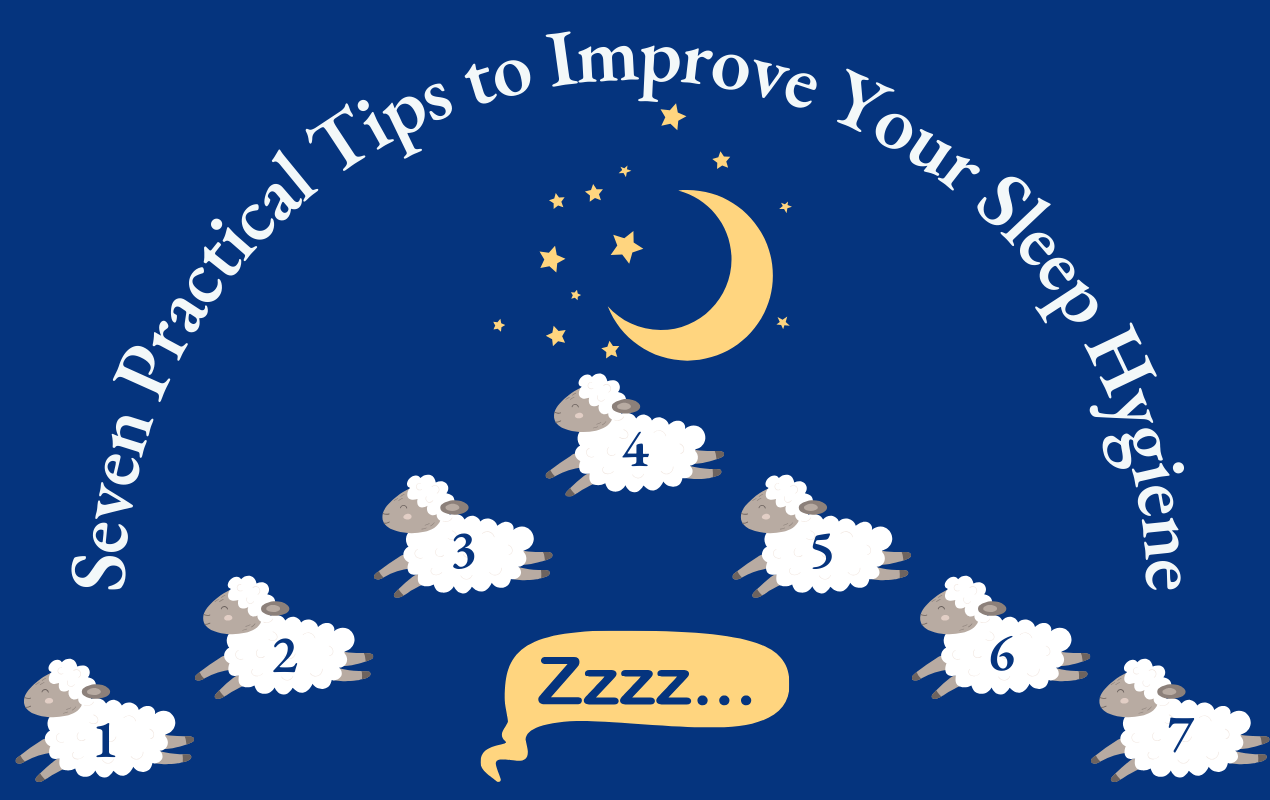What On Earth is Sleep Hygiene?

At first glance, it may seem like the words “sleep” and “hygiene” have no relationship whatsoever. Yet, the concept of “sleep hygiene” is not new, and it’s fundamental to all adults pursuing longevity, vitality, and overall health, regardless of age. When we consider the basic definition of the word “hygiene,” the phrase “sleep hygiene” begins to make more sense:
Hygiene = A set of conditions and practices that promote cleanliness, health, and well-being to prevent the spread of germs and infections so you can feel strong and vibrant. In short, cleanliness helps maintain health and mitigate various diseases.
Sleep Hygiene = A set of conditions and practices that promote “clean,” healthy, restorative sleep patterns and optimize the quality of your rest to help you wake up feeling refreshed and rejuvenated. In short, restorative sleep helps maintain health and mitigate various diseases.
With those definitions in mind, it’s clear that sleep is an essential ingredient in pursuing optimal wellness and human function. The fundamental principles of sleep hygiene encompass various factors, including your sleep environment, daily routines, bedtime habits, and other factors that promote falling asleep faster, sleeping more soundly, and waking up feeling energized. We can’t imagine anyone who doesn’t want those things!
So, What’s the Big Deal About Sleep, Anyway?
You have probably heard people who say that good sleep “recharges their batteries.” While we all know that humans do not run on batteries, thinking about sleep as a power source to recharge our most fundamental universal device, our human body, is helpful and quite apt.
Imagine that we were as committed to keeping our bodies charged and ready to go as much as our communication devices or vehicles. Wow. Our society would be far healthier because adequate rest allows your body to repair and regenerate tissues, consolidate memories, regulate mood, and support immune function. We cannot overstate the benefits of regular quality sleep:
- Improved Overall Health: Chronic sleep deprivation triggers a domino effect of health concerns, including weight gain, heart disease, diabetes, and even depression. Good sleep hygiene promotes restorative sleep, which is critical for optimal physical and mental well-being.
- Enhanced Cognitive Function: Simply put, when well-rested, your mind is sharper! Adequate sleep improves memory, focus, concentration, and overall cognitive performance.
- Boosted Mood and Energy Levels: Poor sleep can make you irritable and sluggish. Good sleep hygiene promotes better mood regulation and increased energy levels throughout the day.
- More robust Immune System: Sleep plays a critical role in immune function. Adequate sleep strengthens your body’s ability to fight off illness and infection.
You might wonder, “How do I begin implementing better sleep hygiene habits?” or, “What are some real-life things I can start doing today to improve my sleep?” We’re glad you asked. Below, we have compiled a list of seven practical tips to improve sleep hygiene.
 Seven Practical Tips to Improve Your Sleep Hygiene
Seven Practical Tips to Improve Your Sleep Hygiene
Sleep Hygiene Tip #1 | Maintain a Consistent Sleep Schedule: Aim to go to bed and wake up at the same time every day, even on weekends, because consistency helps regulate your body’s internal clock and improve sleep quality. Experiment with your unique needs and try not to compare yourself to anyone else. The amount of sleep necessary for an average American adult depends on factors such as age, individual needs, lifestyle, and overall health. However, according to the National Sleep Foundation, the general rule is that adults need anywhere from seven to nine hours of quality sleep per night.
Sleep Hygiene Tip #2 | Create a Relaxing Bedtime Routine: Establish a calming pre-sleep routine to signal your body and brain that it’s time to wind down. Consider wind-down activities such as reading, listening to soothing music or audiobooks, or practicing relaxation techniques like deep breathing or meditation. Calming your body before bed tells your nervous system that it’s safe to relax, so there’s no need to release hormones that increase alertness and heart rate (such as cortisol and adrenaline) into your bloodstream.
Sleep Hygiene Tip #3 | Limit Screen Time Before Bed: Please don’t incorporate digital screens into your bedtime routine. Whether it’s your TV, phone, computer, or tablet, looking at a screen just before bed is a big trap many people in our society fall prey to. It will likely take some practice and getting used to, but avoiding exposure to screens at least an hour before bedtime is best. Why? Because the blue light emitted by electronic devices can interfere with your body’s natural sleep-wake cycle and make it harder to fall asleep.
Sleep Hygiene Tip #4 | Optimize Your Sleep Environment: Speaking of reducing light before bed, you should also avoid lights on during sleep. Even small amounts of ambient light in your room (think illuminated charging cables, digital devices, and the like) while you’re trying to sleep can impair glucose metabolism and increase your heart rate, according to a Northwestern Medicine study published in the Proceedings of the National Academy of Sciences in 2022. Make your bedroom a sleep-friendly environment by keeping it cool, quiet, and dark. Invest in a comfortable mattress and pillows, and consider using white noise machines, earplugs, or blackout curtains to minimize disruptions.
Sleep Hygiene Tip #5 | Master Your Diet and Hydration: Avoid heavy meals, caffeine, and alcohol (yes, even your glass of wine) close to bedtime, as these can disrupt sleep. Instead, opt for light, easily digestible snacks, and stay hydrated throughout the day to prevent nighttime thirst disturbances. Ironically, many adults turn to their nightly alcoholic drink to wind down before bed, but sleep experts do not recommend that habit. Why? Because while alcohol may initially make you feel drowsy, research indicates it can make it harder to fall asleep in the first place and that even moderate amounts of alcohol in the bloodstream reduce sleep duration, sleep quality, and the overall restorative aspects of sleep due to alcohol-induced increased heart rate.
Sleep Hygiene Tip #6 | Stay Active During the Day: Regular physical activity can promote better sleep quality by reducing stress, anxiety, and tension. Aim for at least 30 minutes of moderate exercise most days of the week. However, avoid vigorous exercise close to bedtime, as it may energize you and make it harder to fall asleep.
Sleep Hygiene Tip #7 | Manage Stress and Anxiety: To calm your mind and body before bedtime, practice stress-reducing techniques such as regular massage, a daily mindfulness practice, yoga, and other low-stress exercises, or progressive muscle relaxation. Consider keeping a journal to jot down your thoughts and worries, allowing you to clear your mind before sleep.
If you experience persistent sleep problems despite practicing good sleep hygiene, consider seeking guidance from a reputable healthcare professional to help you identify underlying sleep disorders or other conditions contributing to your sleep disturbances. Understanding the vital role of sleep could quite literally change your life (for the better), so we highly recommend you learn as much as possible about sleep hygiene and start today to prioritize healthy sleep habits!
When you’re searching for a “chiropractor near me,” you can feel confident directing all your chiropractic care-related questions to Dr. Vivian Ebert of LivingWell Chiropractic in Bonita Springs, FL, located on the border of Estero in The Brooks Town Center at the northwest corner of Three Oaks Parkway and Coconut Road.
LivingWell Chiropractic provides state-of-the-art chiropractic care, spinal decompression, medical massage, and nutritional guidance with a holistic wellness approach focused on pain relief for patients with musculoskeletal conditions. Centrally located in Bonita Springs, the office is convenient for patients from Naples, Bonita Springs, Estero, and South Fort Myers.
Posted In:
Live Well Articles
